Related Research Articles
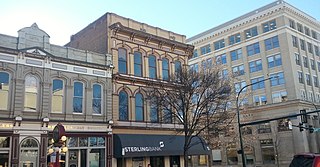
Walla Walla is the largest city and county seat of Walla Walla County, Washington, United States. It had a population of 31,731 at the 2010 census, estimated to have increased to 32,900 as of 2019. The population of the city and its two suburbs, the town of College Place and unincorporated Walla Walla East, is about 45,000.

Walla Walla University is a private Adventist university in College Place, Washington. The university has five campuses throughout the Pacific Northwest. It was founded in 1892 and is affiliated with the Seventh-day Adventist Church.

Whitman College is a private liberal arts college in Walla Walla, Washington. The school offers 53 majors and 33 minors in the liberal arts and sciences, and it has a student-to-faculty ratio of 9:1. Whitman was the first college in the Pacific Northwest to install a Phi Beta Kappa chapter, and the first in the U.S. to require comprehensive exams for graduation. Alumni have received 1 Nobel Prize in physics, 1 Presidential Medal of Freedom, 7 Rhodes Scholarships, 1 Marshall Scholarship, 3 Schwarzman Scholarships, 35 Watson Fellowships, and 62 Fulbright Fellowships.

Internet2 is a not-for-profit United States computer networking consortium led by members from the research and education communities, industry, and government. The Internet2 consortium administrative headquarters are located in Ann Arbor, Michigan, with offices in Washington, D.C. and Emeryville, California.

The University of Puget Sound is a private university in Tacoma, Washington. The university draws approximately 2,600 students from 44 states and 16 countries. It offers 1,200 courses each year in more than 50 traditional and interdisciplinary areas of study.
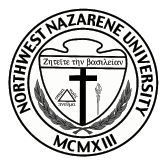
Northwest Nazarene University (NNU) is a private Christian university in Nampa, Idaho.

Open educational resources (OER) are freely accessible, openly licensed instructional materials such as text, media, and other digital assets that are useful for teaching, learning, and assessing, as well as for research purposes.

A telecentre is a public place where people can access computers, the Internet, and other digital technologies that enable them to gather information, create, learn, and communicate with others while they develop essential digital skills. Telecentres exist in almost every country, although they sometimes go by a different names including public internet access center (PIAP), village knowledge center, infocenter, Telecottage, Electronic Village Hall, community technology center (CTC), community multimedia center (CMC), multipurpose community telecentre (MCT), Common/Citizen Service Centre (CSC) and school-based telecentre. While each telecentre is different, their common focus is on the use of digital technologies to support community, economic, educational, and social development—reducing isolation, bridging the digital divide, promoting health issues, creating economic opportunities, and reaching out to youth for example.
The Ocean State Higher Education Economic Development and Administrative Network is a non-profit coalition of colleges, universities, K-12 school, libraries, hospitals, government agencies and other non-profit organizations, providing Internet-based technology for its member institutions and the communities they serve. OSHEAN is a member of the Rhode Island technology community, regularly contributing expertise and resources to a wide range of initiatives, from school enrichment activities to community forums on technology-related issues in the public interest. OSHEAN regularly pursues opportunities for local, regional and national collaboration and plays a national leadership role in professional education for IT professionals and policy development in the information technology arena.
The Corporation for Education Network Initiatives in California is a nonprofit corporation formed in 1997 to provide high-performance, high-bandwidth networking services to California universities and research institutions. Through this corporation, representatives from all of California's K-20 public education combine their networking resources toward the operation, deployment, and maintenance of the California Research and Education Network, or CalREN. Today, CalREN operates over 8,000 miles of fiber optic cable and serves more than 20 million users.

ConferenceXP is a free and open source video conferencing platform designed to address the needs of academic distance learning / multi-institutional instruction and advanced collaboration scenarios.
The University of Washington School of Medicine (UWSOM) is a large public medical school in the northwest United States, located in Seattle and affiliated with the University of Washington. According to U.S. News & World Report’s 2022 Best Graduate School rankings, University of Washington School of Medicine ranked #1 in the nation for primary care education, and #7 for research.
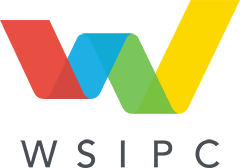
The Washington School Information Processing Cooperative (WSIPC) is a public non-profit cooperative that provides K-12 public and private schools with various services. WSIPC services schools throughout the northwest in Washington, Oregon, Idaho, Montana, and Alaska, providing benefits to 9 Educational Service Districts and more than 300 school districts, who represent over 1 million students.
The Spokane Public Library and Spokane County Library District system provide the Spokane area with access to information and study space. Secondary education is provided by Spokane Public Schools with its six high schools, six middle schools, and thirty-four elementary schools. Public charter, private, and parochial schools offer more choices of study. Higher education in Spokane is served by the Community Colleges of Spokane system and two private universities, Gonzaga University and Whitworth University as well as various trade and technical schools. The University District in Downtown Spokane is also host to branch locations of regional universities such as Washington State University Spokane and its medical school, the Elson S. Floyd College of Medicine.
An open textbook is a textbook licensed under an open copyright license, and made available online to be freely used by students, teachers and members of the public. Many open textbooks are distributed in either print, e-book, or audio formats that may be downloaded or purchased at little or no cost.
The University of Washington School of Medicine's WWAMI Regional Medical Education Program is a partnership in the western United States, established in 1971 between the state of Washington, the University of Washington and the states of Wyoming, Alaska, Montana and Idaho, hence the acronym "WWAMI."
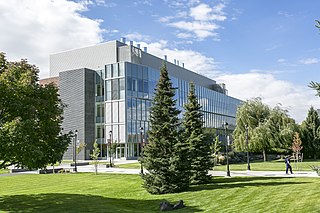
The Elson S. Floyd College of Medicine is a public medical school headquartered in Spokane, Washington. Founded in 2015, it is part of Washington State University, and is the second public medical school in the state of Washington. It welcomed its inaugural class in the fall of 2017, joining the University of Washington and Pacific Northwest University of Health Sciences as one of three medical schools in the state.
ConnectEd is a United States Federal Government Initiative that aims to increase internet connectivity and technology in all public schools to enhance learning. The ConnectEd initiative is funded through Title IV Part A of the Every Student Succeeds Act (ESSA), which designates specific monies for the effective use of technology in schools. The 2016 National Education Technology Plan aligns with ConnectEd as a published action plan to meet these goals of technology integration and connectivity.
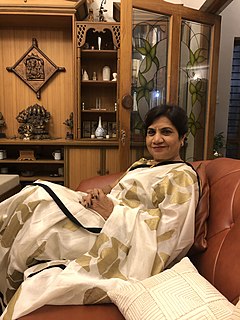
Shalini R. Urs is an information scientist who pioneered the digital library movement in India, particularly the Electronic Thesis and Dissertations (ETD). She was awarded the Networked Digital Library of Theses and Dissertations–Adobe Leadership award in 2004 for her initiatives. She built a multilingual online digital library called Vidyanidhi in 2000, long before the digital era captured the imagination of many in India.
References
- ↑ Littman 2002, p. 28.
- ↑ Crampton & Thompson 2003, p. 213.
- ↑ K-20 Education Network, Washington State Board for Community and Technical Colleges, October 28, 2016
- ↑ Jill Rosen (January 18, 2000), "Washington Governor Proposes Jump-Start for Telecommunications", Federal Computer Week
- ↑ Washington Public Libraries and the K-20 Network, Washington Secretary of State/Washington State Library, retrieved 2016-11-02
- ↑ Intergovernmental Agreement for K2 Network, City of Walla Walla, November 20, 2002
- ↑ State funding brings WWAMI classroom, Washington State University, January 11, 2007
- ↑ Washington's K-20 Schools Are Now On the Next Generation Internet (press release), Pacific Northwest Gigapop, June 4, 2001
- ↑ Network map, K-20 Education Network, 2013